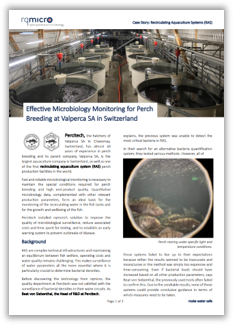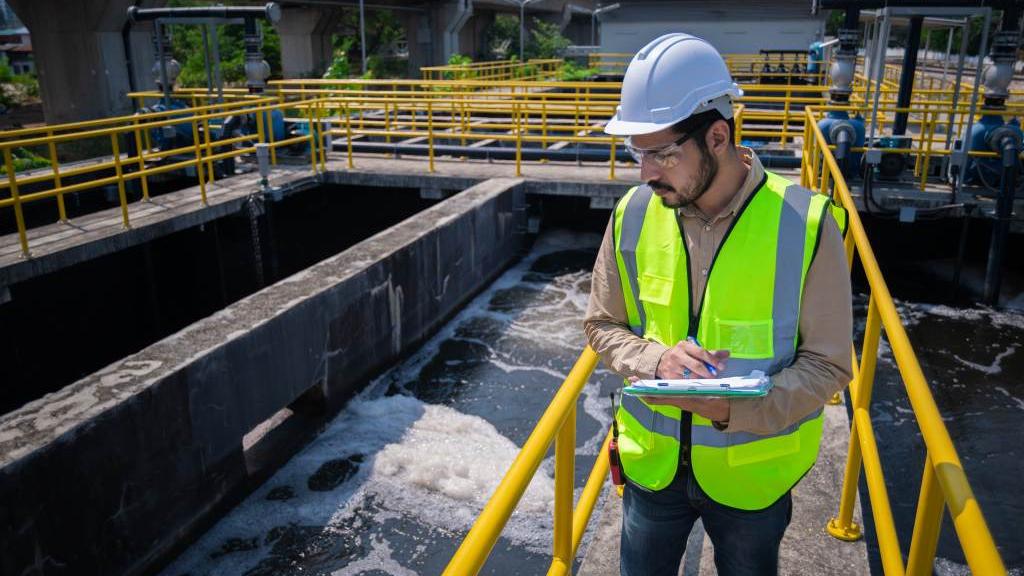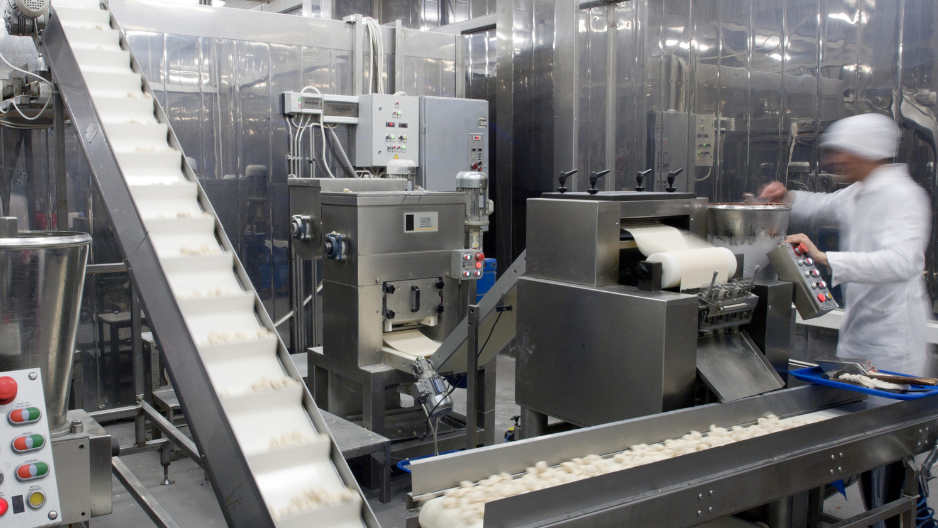Bioburden Monitoring in Recirculating Aquaculture Systems (RAS)
Industry
Fish farmers need to be in control of water microbiology
Aquaculture provides more than half of the seafood consumed worldwide. While the vast majority of aquaculture today is sea-based, the last years have seen a significant trend towards land-based aquaculture, using recirculating aquaculture systems (RAS).
Raising fish in highly controlled artificial water systems close to consumers and using renewable energy has tangible benefits. However, the high degree of water reuse and the associated extensive water treatment require strict and timely control of bacterial growth. Rapid and accurate quantification of live bacteria can ensure water quality and thus fish health and yield. Monitoring physical and chemical parameters is vital for process control but cannot provide for more than a rough indication of the extent and dynamics of the microbial biomass in the water.
To establish a reliable control system, RAS operators define critical control points (CCP) for direct microbiology monitoring using the rqmicro.COUNT instrument.
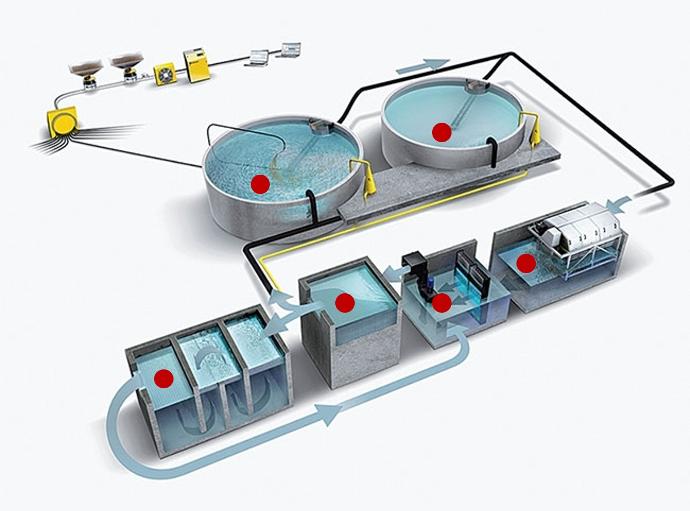
Critical Control Points (CCPs)
To establish a reliable control system, RAS operators define critical control points (CCP) for direct microbiology monitoring using the rqmicro.COUNT.
Typical CCPs include:
- water intake
- fish tanks
- hatchery
- treatment stages
- backwash
- water outlet
Critical Control Points (CCPs)
To establish a reliable control system, RAS operators define critical control points (CCP) for direct microbiology monitoring using the rqmicro.COUNT.
Typical CCPs include:
- water intake
- fish tanks
- hatchery
- treatment stages
- backwash
- water outlet

rqmicro.COUNT
An easy-to-use solution that provides fish farmers with up-to-date and quantitative microbiology data
The ability to quantitatively assess the bacterial load at critical control points in RAS water is a cornerstone to maintain microbiological safety, to assure fish welfare, and to monitor, benchmark and improve the farming process.
With rqmicro.COUNT, RAS operators are able to understand process-related differences between basins and to verify the effectiveness of water treatment processes. Only through quantitative monitoring is it possible to define meaningful and reliable thresholds and establish corrective actions.
Intact Cell Count (ICC): a quantitative assessment of bioburden based on counting viable bacteria in water samples
Hands-on time for the analysis on rqmicro.COUNT is less than 1 minute per sample and results are immediately available online. It is thus easy to integrate the analysis into the daily workflow and to obtain a holistic and specific understanding of the microbiological behavior in aquaculture systems.
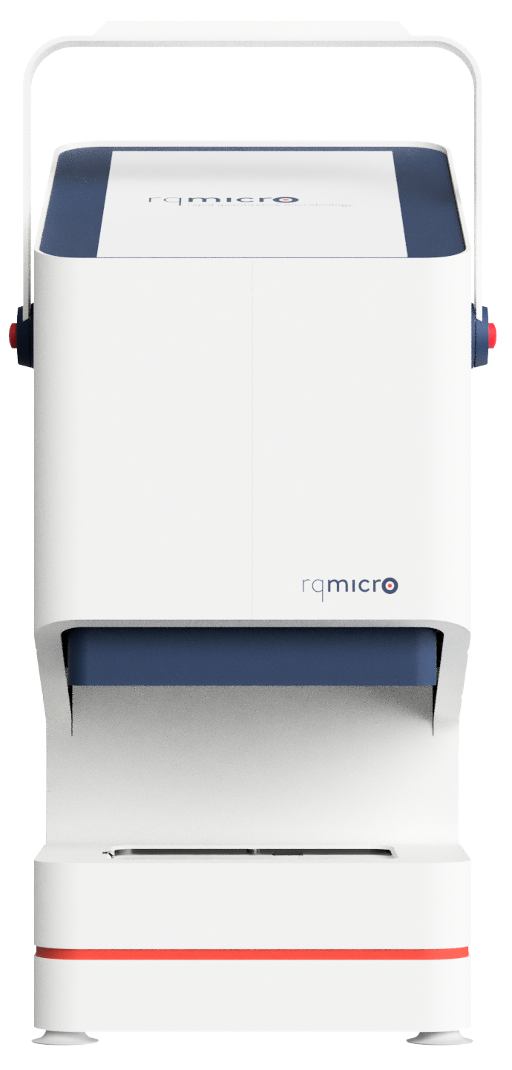
"With rqmicro.COUNT, the total weekly workload for bacterial quantification is reduced by 50% compared to the previous system and we get more reliable results."
Beat Von Siebenthal
Head of R&D at Percitech Écloserie (LA PERCHE LOË - Valperca SA)
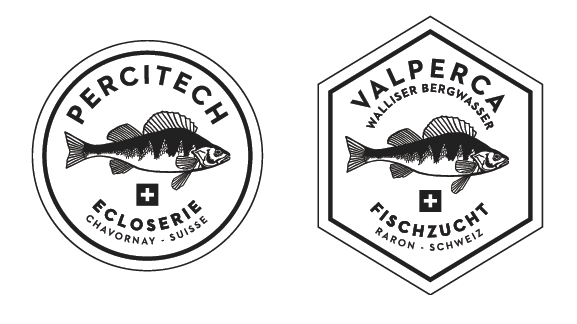
Benefits
Fish farmers must monitor water quality parameters and maintain them in ranges that promote maximum growth while reducing waste and water consumption. Feed inputs have significant impacts on the aquatic environment and nutrient levels that can promote microbial growth, resulting in poor water quality and affecting fish health and performance. As modern aquaculture facilities operate at capacity, high biological risk factors are at play, and monitoring and immediate action are needed to reduce mortality and to maximize yields.
Better Water Quality
- Increase water circulation ratio
- Monitor microbial load in fresh water intake and water discharge
- Improve water treatment and equipment maintenance routines
Appropriate Feeding System
- Detect bioburden from food
- Assess impact of changes in food or feeding routine
- Improve feed conversion ratio (FCR)
Improved Fish Welfare
- Effectively control water hygiene
- Take timely and effective measures in case of disease
- Decrease fish mortality
Increased Farm ROI
- Benchmark basins, treatment routines and equipment
- Perform lab-grade microbiology analysis in-house
- Increase fish farm yield
Rapid Microbiology Tests for the Aquaculture (RAS)
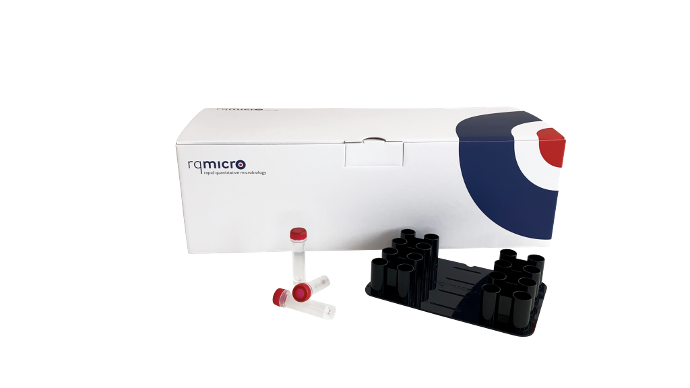
Intact Cell Count
Test kit for the rapid and quantitative detection of total viable bacteria in water samples.
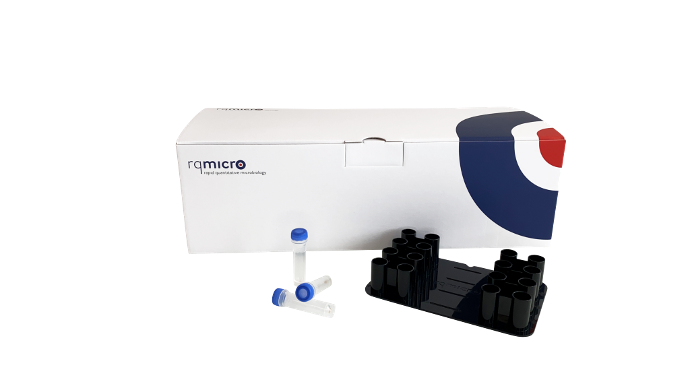
Total Cell Count
Test kit for the rapid and quantitative detection of total bacteria in water samples.
Take the first step towards gaining a deeper understanding of what's affecting your recirculating aquaculture system.

Christophe Gutknecht
Senior Sales Manager
+41 78 229 51 15
christophe.gutknecht@rqmicro.com
Connect on LinkedIn
Book a consultation with Christophe
Recommended for You:

Water Safety Considerations for Food & Beverage Companies
As part of any Hazard Analysis and Critical Control Points (HACCP) process, food and beverage companies should test for water contamination. Read more about the benefits of rqmicro.COUNT for food and beverage manufacturers in our latest blog post.
READ MORE
